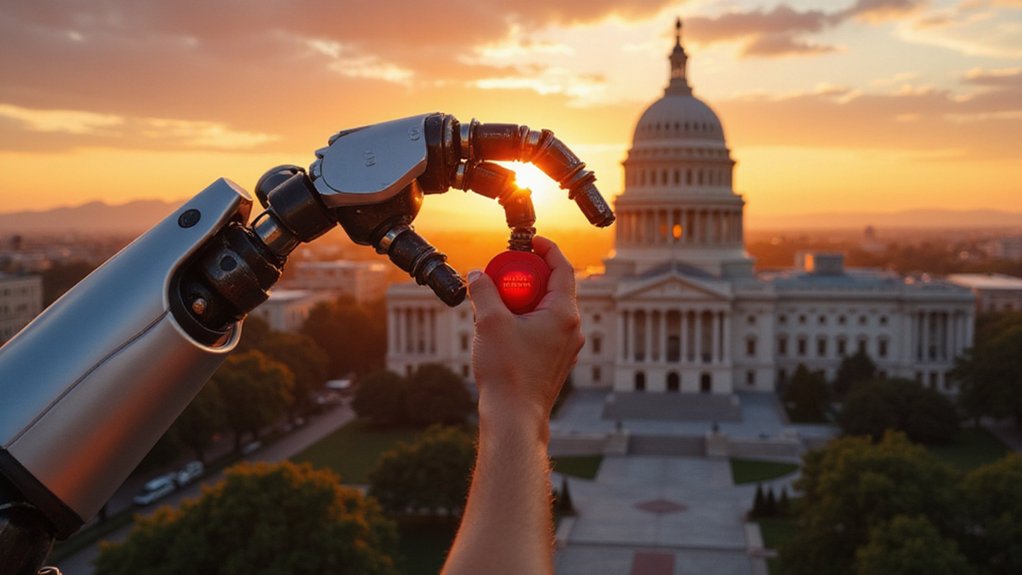Virginia Governor Glenn Youngkin vetoed House Bill 2094, legislation designed to prevent AI discrimination. The bill would have required companies to implement safeguards against algorithmic bias in housing, employment, healthcare, and education. Youngkin claimed the regulations would harm innovation and job creation. Consumer advocates expressed disappointment, while industry groups supported the decision. The Democratic-controlled Assembly could attempt to override the veto with a two-thirds majority vote. The controversy highlights growing tensions over AI oversight.
Virginia Governor Glenn Youngkin vetoed a bill aimed at regulating artificial intelligence systems across the state late Monday night. The legislation, HB 2094, would have created rules for high-risk AI systems to prevent algorithmic discrimination against Virginia residents. The bill passed the state legislature in February 2025 and would have taken effect on July 1, 2026 if signed.
Youngkin rejected the measure just before the midnight deadline on March 24, stating it would harm innovation and job creation. He argued the bill would place too many burdens on businesses using AI technology. Instead, he pointed to his existing AI executive order that already established guidelines for responsible usage. The veto means Virginia won’t join Colorado as the second state with extensive AI regulations.
Governor Youngkin’s veto blocks AI regulations he claims would hinder business innovation and job growth in Virginia.
HB 2094 was modeled after Colorado’s 2024 AI law. It would have required companies to implement safeguards against discrimination when AI makes important decisions about people. The bill focused on high-risk uses of AI in areas like housing, employment, healthcare, and education.
Companies would have needed to document how their AI systems work, create risk management policies, and assess the impact of high-risk systems before using them. These measures aimed to make AI more transparent and accountable. The legislation would have addressed core fairness principles that are essential for ensuring AI doesn’t perpetuate bias against vulnerable groups.
Reactions to the veto were mixed. Industry groups supported Youngkin’s decision, while consumer advocates expressed disappointment. Interestingly, the Electronic Privacy Information Center (EPIC) welcomed the veto, believing the bill wasn’t strong enough. EPIC criticized the legislation for containing numerous loopholes that would have weakened its protective capacity.
The Democratic-controlled Virginia Assembly could try to override the veto, but this would require a two-thirds vote in both houses. Lawmakers might also introduce a revised bill in the next session.
Youngkin’s decision highlights the growing debate about AI regulation across the country. California, Texas, and New York are considering similar bills, creating a patchwork of state rules.
The veto also points to a potential partisan divide on AI oversight, with questions about whether regulation should happen at the state or federal level. As AI continues to impact everyday life, the debate over proper safeguards is likely to intensify in the coming years.









